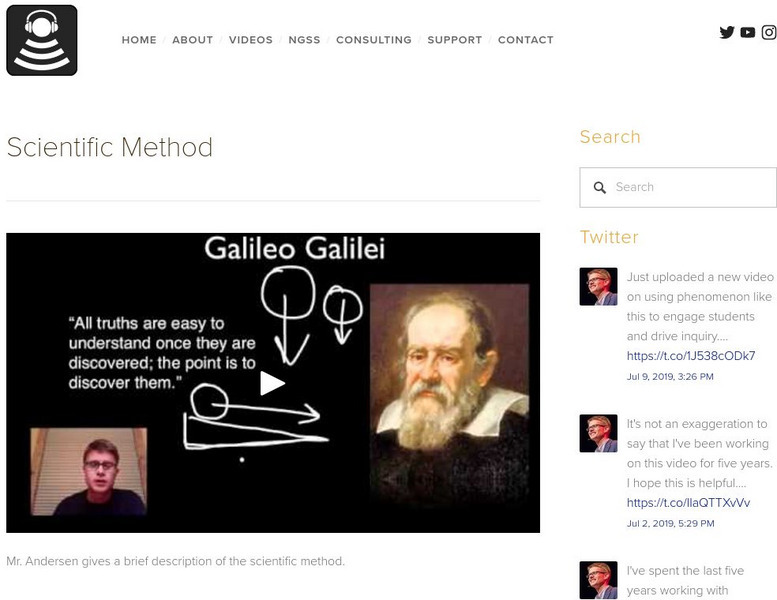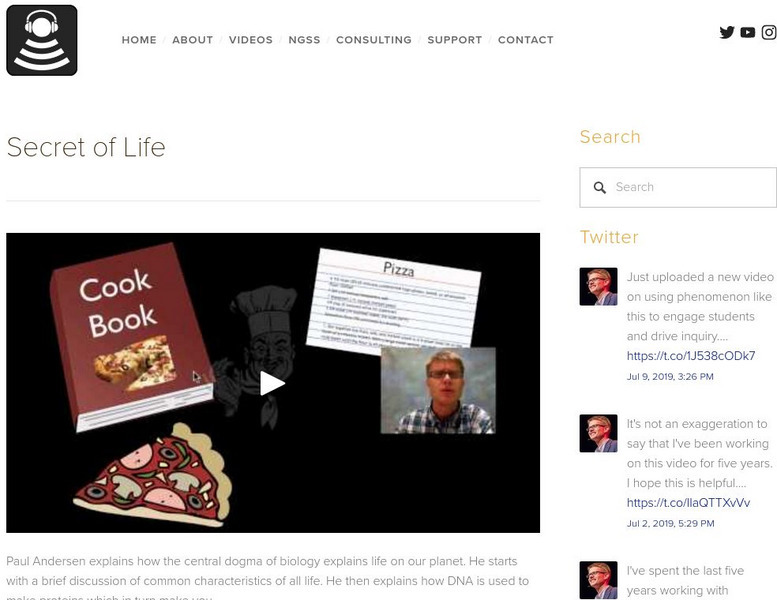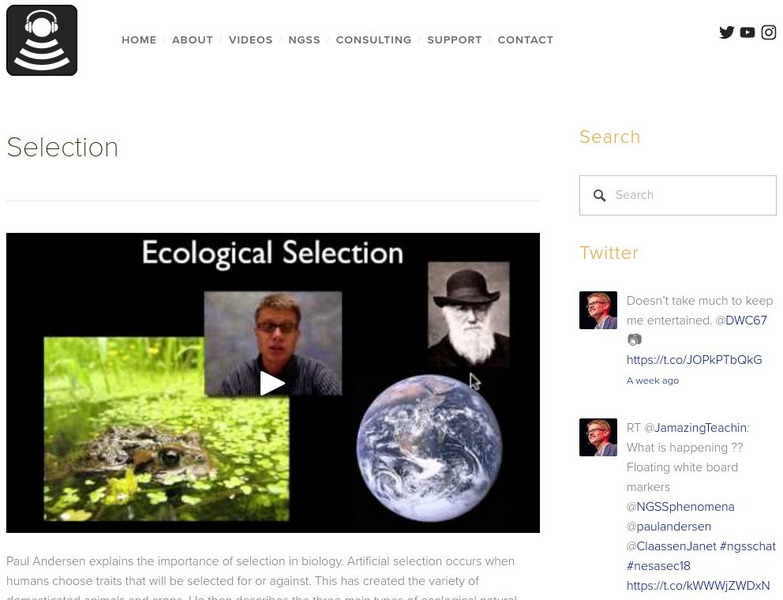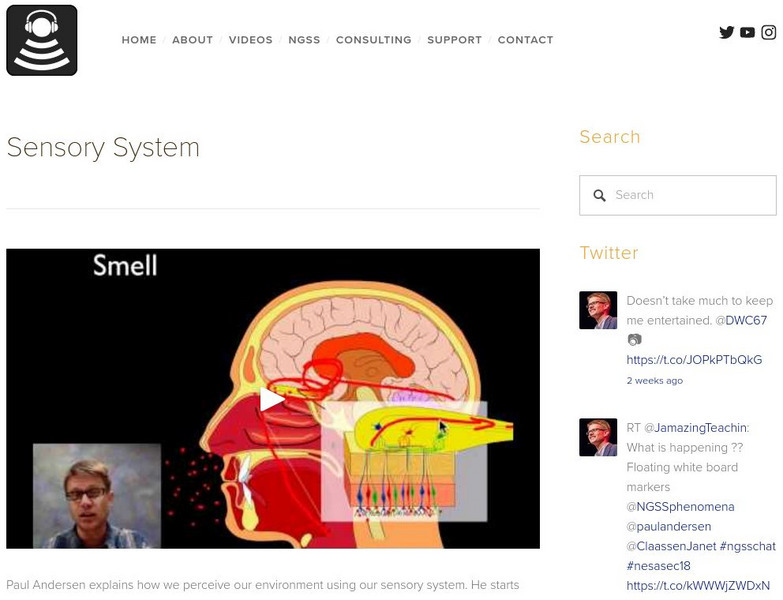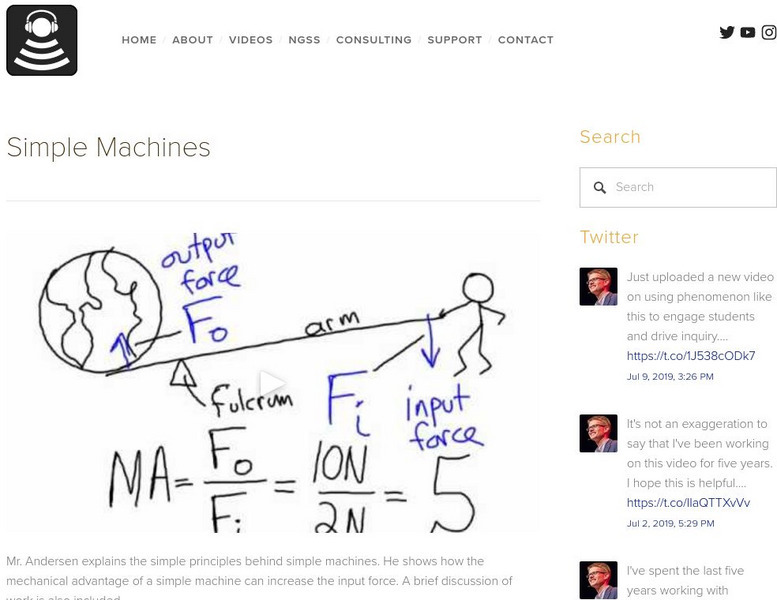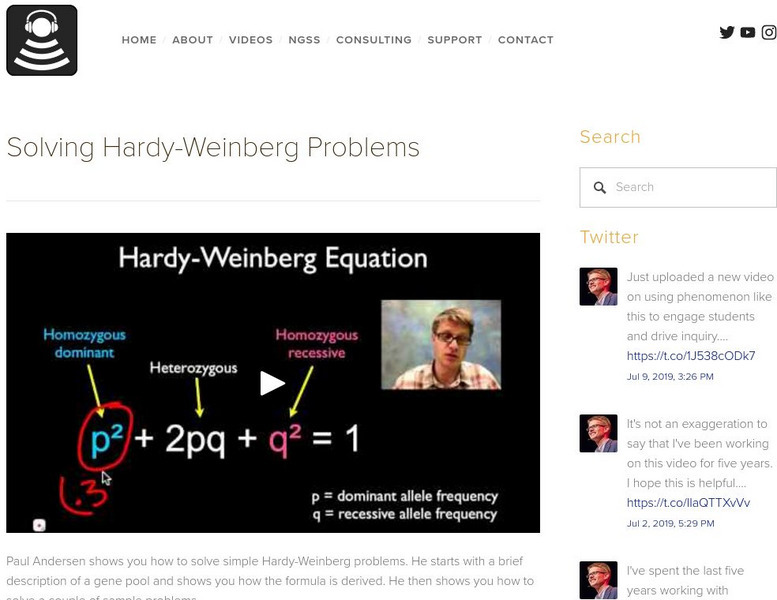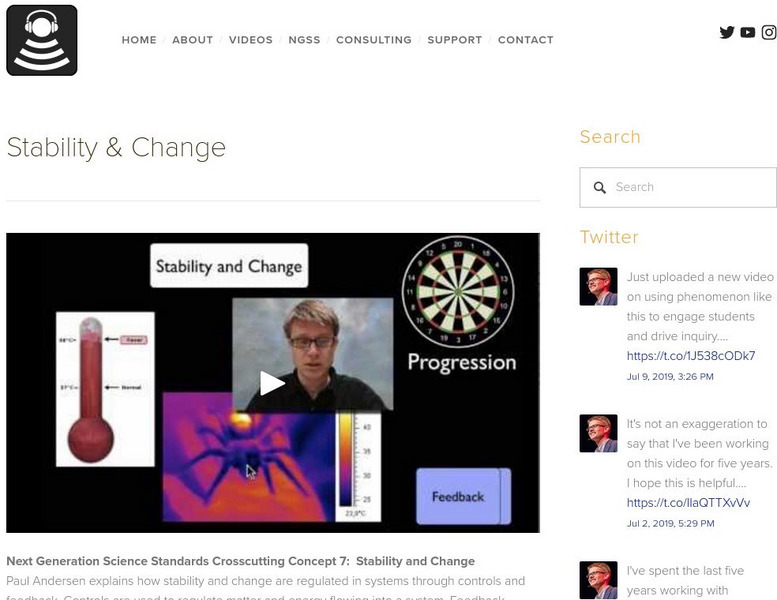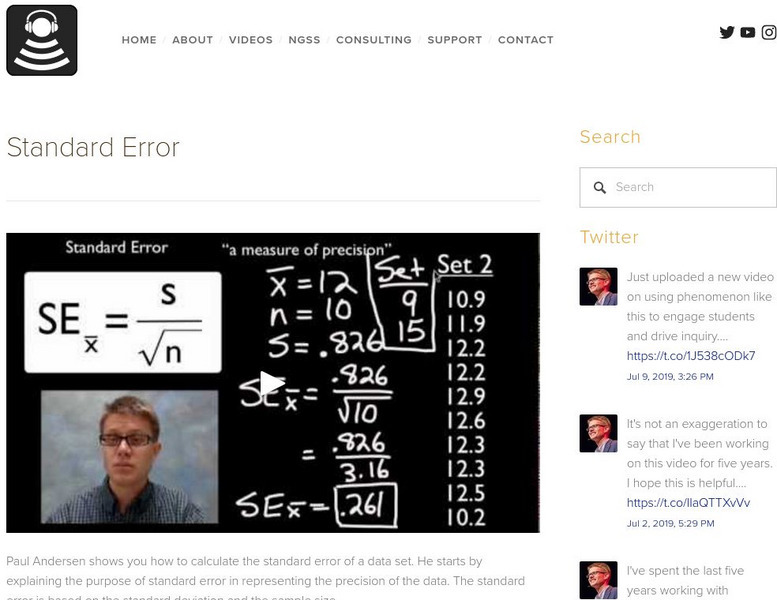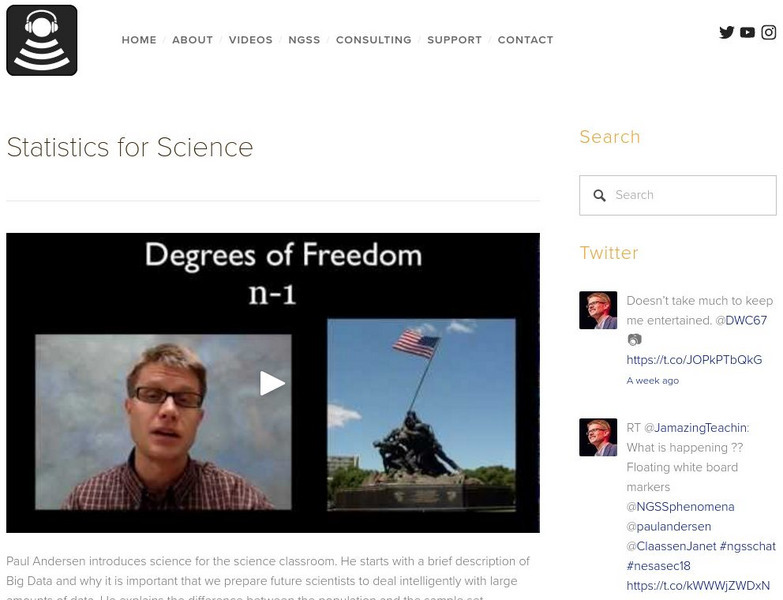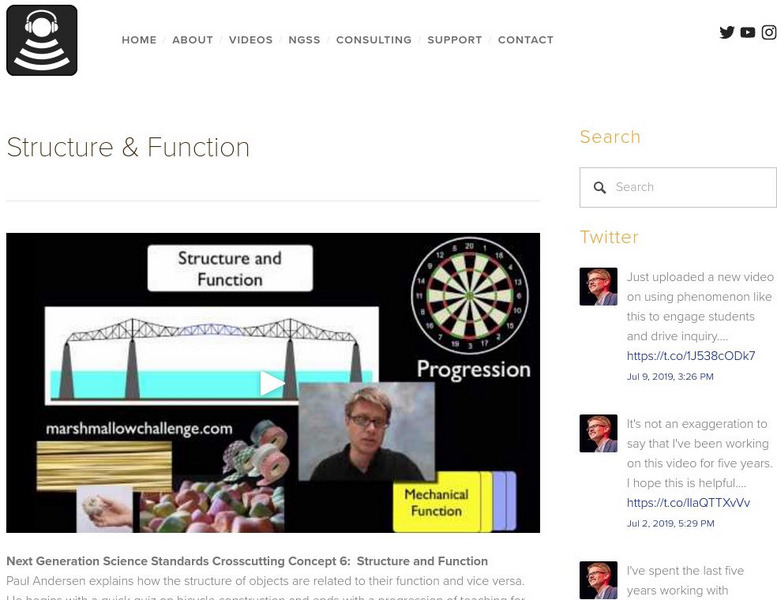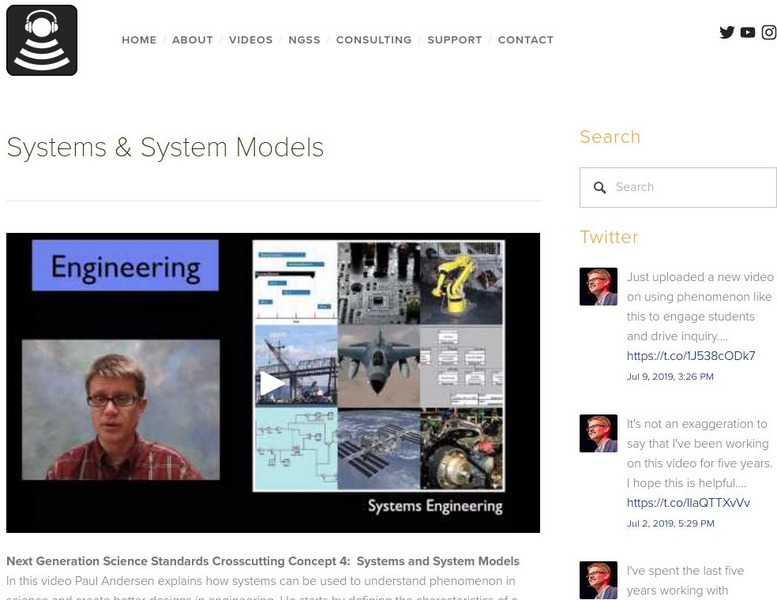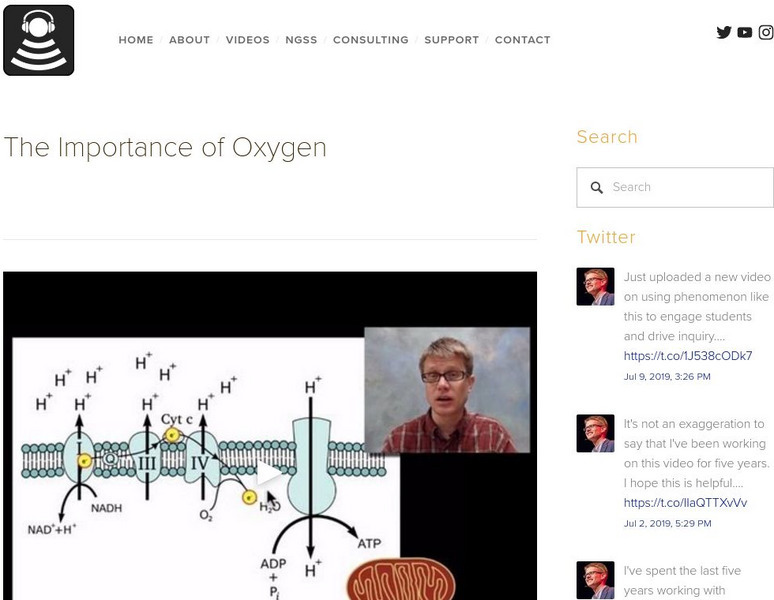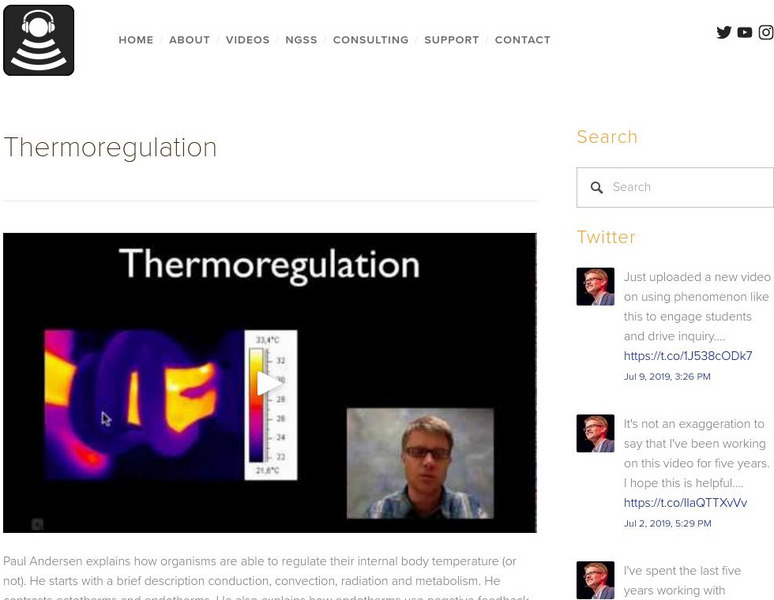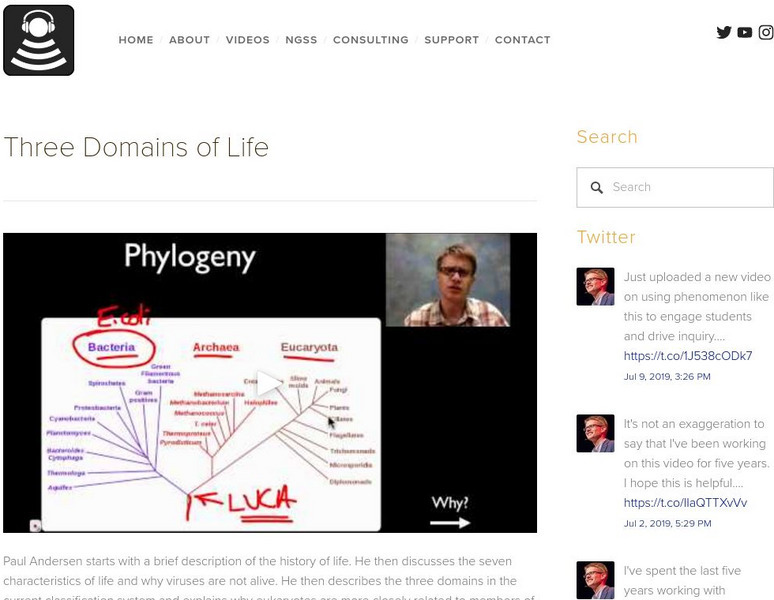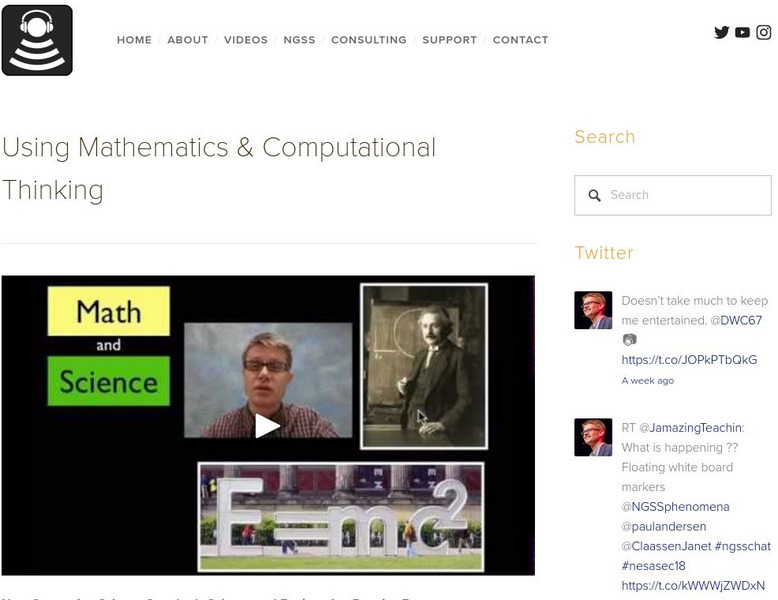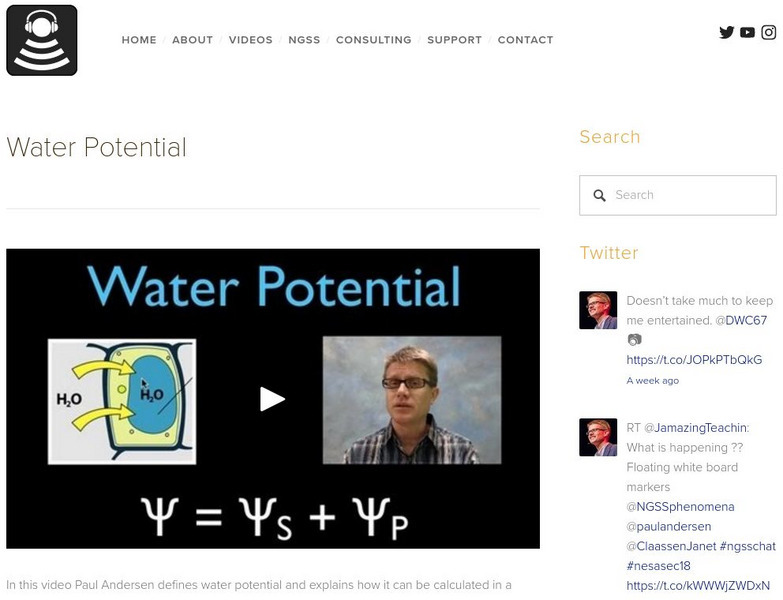Hi, what do you want to do?
Bozeman Science
Bozeman Science: Scientific Method
Mr. Andersen gives a brief description of the scientific method.
Bozeman Science
Bozeman Science: Secret of Life
Paul Andersen explains how the central dogma of biology explains life on our planet. He starts with a brief discussion of common characteristics of all life. He then explains how DNA is used to make proteins which in turn make you.
Bozeman Science
Bozeman Science: Selection
Paul Andersen explains the importance of selection in biology. Artificial selection occurs when humans choose traits that will be selected for or against. This has created the variety of domesticated animals and crops. He then describes...
Bozeman Science
Bozeman Science: Sensory System
Paul Andersen explains how we perceive our environment using our sensory system. He starts with a brief discussion of action potentials and the nervous system. He shows that we many more than five senses. He goes into more detail to show...
Bozeman Science
Bozeman Science: Series & Parallel Circuits
Mr. Andersen contrasts series and parallel electrical circuits. A simulation is used to visualize electron flow through both circuit types.
Bozeman Science
Bozeman Science: Significant Digits
Mr. Andersen explains significant digits and shows you how to use them in calculations.
Bozeman Science
Bozeman Science: Simple Machines
Mr. Andersen explains the simple principles behind simple machines. He shows how the mechanical advantage of a simple machine can increase the input force. A brief discussion of work is also included.
Bozeman Science
Bozeman Science: Solving Hardy Weinberg Problems
Paul Andersen shows you how to solve simple Hardy-Weinberg problems. He starts with a brief description of a gene pool and shows you how the formula is derived. He then shows you how to solve a couple of sample problems.
Bozeman Science
Bozeman Science: Stability & Change
Paul Andersen explains how stability and change are regulated in systems through controls and feedback. Controls are used to regulate matter and energy flowing into a system. Feedback mechanisms within the system are used to regulate...
Bozeman Science
Bozeman Science: Standard Deviation
In this video, Paul Andersen explains the importance of standard deviation. He starts with a discussion of normal distribution and how the standard deviation measures the average distance from the mean, or the \"spread\" of data. He then...
Bozeman Science
Bozeman Science: Standard Error
Paul Andersen shows you how to calculate the standard error of a data set. He starts by explaining the purpose of standard error in representing the precision of the data. The standard error is based on the standard deviation and the...
Bozeman Science
Bozeman Science: Statistics for Science
Paul Andersen introduces science for the science classroom. He starts with a brief description of Big Data and why it is important that we prepare future scientists to deal intelligently with large amounts of data. He explains the...
Bozeman Science
Bozeman Science: Structure & Function
Paul Andersen explains how the structure of objects are related to their function and vice versa. He begins with a quick quiz on bicycle construction and ends with a progression of teaching for students grades K-12. He also explains how...
Bozeman Science
Bozeman Science: Systems & System Models
Paul Andersen explains how systems can be used to understand phenomenon in science and create better designs in engineering. He starts by defining the characteristics of a system and describes how system models can be used to better...
Bozeman Science
Bozeman Science: The Importance of Oxygen
In this video, Paul Andersen explains the importance of oxygen in accepting electrons. He begins with a brief description of combustion. He then explains the role of oxygen in aerobic cellular respiration. Do you speak another language?
Bozeman Science
Bozeman Science: The Sodaria Cross
In this video, Paul Andersen shows you how a cross between mutant and wild types of Sordaria fimicola can be used to show and measure frequency of crossing-over. He begins by reviewing the process of meiosis in a typical organism. He...
Bozeman Science
Bozeman Science: Thermoregulation
Paul Andersen explains how organisms are able to regulate their internal body temperature (or not). He starts with a brief description conduction, convection, radiation and metabolism. He contrasts ectotherms and endotherms. He also...
Bozeman Science
Bozeman Science: Three Domains of Life
Paul Andersen starts with a brief description of the history of life. He then discusses the seven characteristics of life and why viruses are not alive. He then describes the three domains in the current classification system and...
Bozeman Science
Bozeman Science: Transcription & Translation
Paul Andersen explains the central dogma of biology. He explains how genes in the DNA are converted to mRNA through the process of transcription. He then explains how ribosomes use this message to convert the mRNA to a functioning protein.
Bozeman Science
Bozeman Science: Using Mathematics & Computational Thinking
Paul Andersen explains how mathematics and computational thinking can be used by scientists to represent variables and by engineers to improve design. He starts by explaining how mathematics is at the root of all sciences.
Bozeman Science
Bozeman Science: Viruses
Paul Andersen describes the important characteristics of viruses. He starts with a brief description of origin theories. He then describes the two characteristics of all viruses; genetic information and protein coats. He also describes...
Bozeman Science
Bozeman Science: Voltage, Current & Resistance
Mr. Andersen describes the relationship between voltage, current and resistance in an electric circuit. Ohm's Law is introduced through a circuit simulation.
Bozeman Science
Bozeman Science: Water & Life
Paul Andersen begins with a brief description of NASA discoveries related to Mars, Mercury and water. He then explains why water is required for life. He finally uses a simulation to show you why water acts as a wonderful solvent and...
Bozeman Science
Bozeman Science: Water Potential
In this video, Paul Andersen defines water potential and explains how it can be calculated in a simple system. He explains how water can moved through osmosis and break down the two major parts of water potential (solute potential and...





